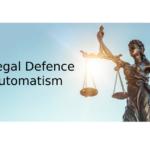VLAD Laws Are a Failure, But Will They Be Scrapped?

After confessing to their part in the ‘Broadbeach Biker Brawl’ in 2013, five motorcycle club members have escaped prison sentences.
Three Bandidos motorcycle club members – President Adam White, Vice-President Ahmed Kaddour and accused instigator Jaques Teamo – were convicted last year for taking part in a fight between the Bandidos and the Finks that erupted outside a packed family restaurant at Broadbeach on the Gold Coast.
Adam White and Jaques Teamo originally received four-month suspended prison sentences for their part, while Kaddour was given a $1200 fine.
In handing down the original sentences, Magistrate Michael Quinn noted that, “Whilst the community’s confidence was shaken, it was not shattered”.
He called the incident a “dangerous” and “totally unacceptable” event which had caused fear and distress to members of the public.
By the same token, the Magistrate pointed out that – with the exception of one police officer being punched multiple times – the incident had involved “bikie on bikie” rather than outsiders, and he had to sentence “fairly” according to the defendants’ individual roles.
His Honour also took into account the fact that several of the men renounced their memberships after the event.
Prosecution Appeals
Police were furious at the perceived leniency of the sentences, and an appeal was subsequently lodged.
On appeal, it was ordered that Mr White and Mr Teamo’s sentences be increased to 12 and 13 months respectively, but the sentences remained suspended – meaning they won’t spend time in prison.
Mr Kaddour was given a seven-month suspended sentence, and Daniel Santa-Maria and Sanjin Delalic received six months suspended each.
Knee Jerk Political Reaction
The 2013 brawl led to a Statewide crackdown on motorcycle club members and a tightening of the Vicious Lawless Association Disestablishment legislation (VLAD), the most oppressive laws against motocycle groups in Australia.
The stated reasoning behind VLAD is to:
- Disestablish associations that encourage, foster or support persons who commit serious offences;
- Increase public safety and security by the disestablishment of the associations, and;
- Deny to persons who commit serious offences the assistance and support gained from association with other persons who participate in the affairs of the associations.
Under the legislation, members of ‘criminal organisations’ who are convicted of ‘serious crimes’ face an extra 15 to 25 years on top of any prison sentences they receive – a situation perceived by many as unfairly oppressive.
In addition, motorcycle club members can be prevented from gathering in one place – and punished for simply associating with one another.
Many believe the laws have simply given police the power to harass motorcycle club members, while failing miserably in achieving their stated objectives.
VLAD has led to just two convictions so far, triggering an independent review of its effectiveness (or lack thereof).
Report Recommends VLAD’s Repeal
As a result of that review, the Queensland Government is considering scrapping the laws and adopting recommendations to make greater use of control orders instead, similar to those placed on sex offenders and suspected terrorists.
Such orders can place stringent requirements on individuals, including non-association conditions and prohibitions from attending specific places.
“These new laws will be tough, workable and enforceable,” says Annastacia Palaszczuk. “There will be no let up from police or prosecutors, we will be giving them more resources.”
The existing VLAD laws remain in force while the Queensland Government reviews the report’s recommendations and decides what to do, which Ms Palaszczuk says is likely to occur by the end of the year.
In the meantime, VLAD will continue to allow police to target and harass motorcycle club members for doing nothing more than associating with their friends and, in some cases, their family members.






